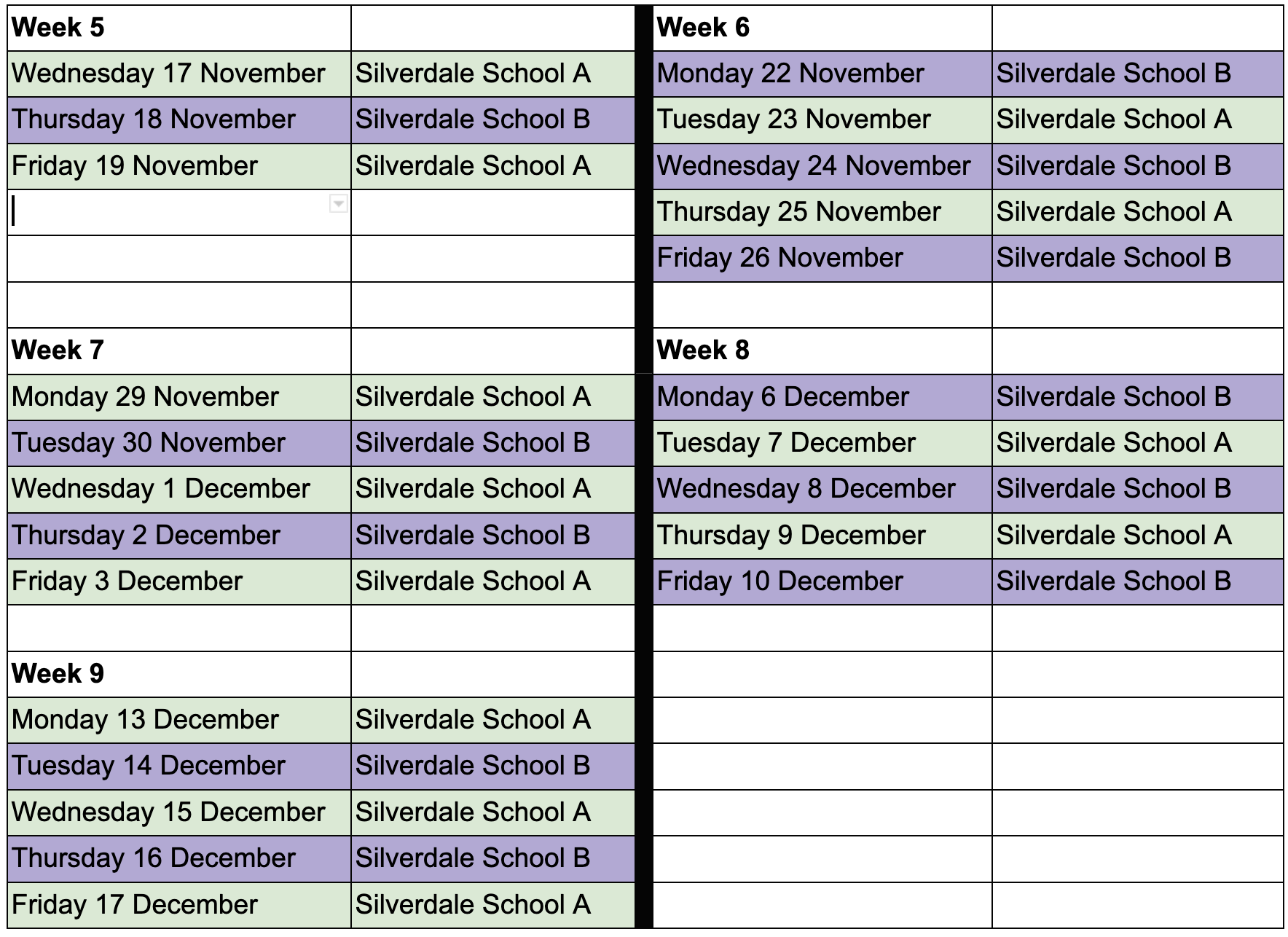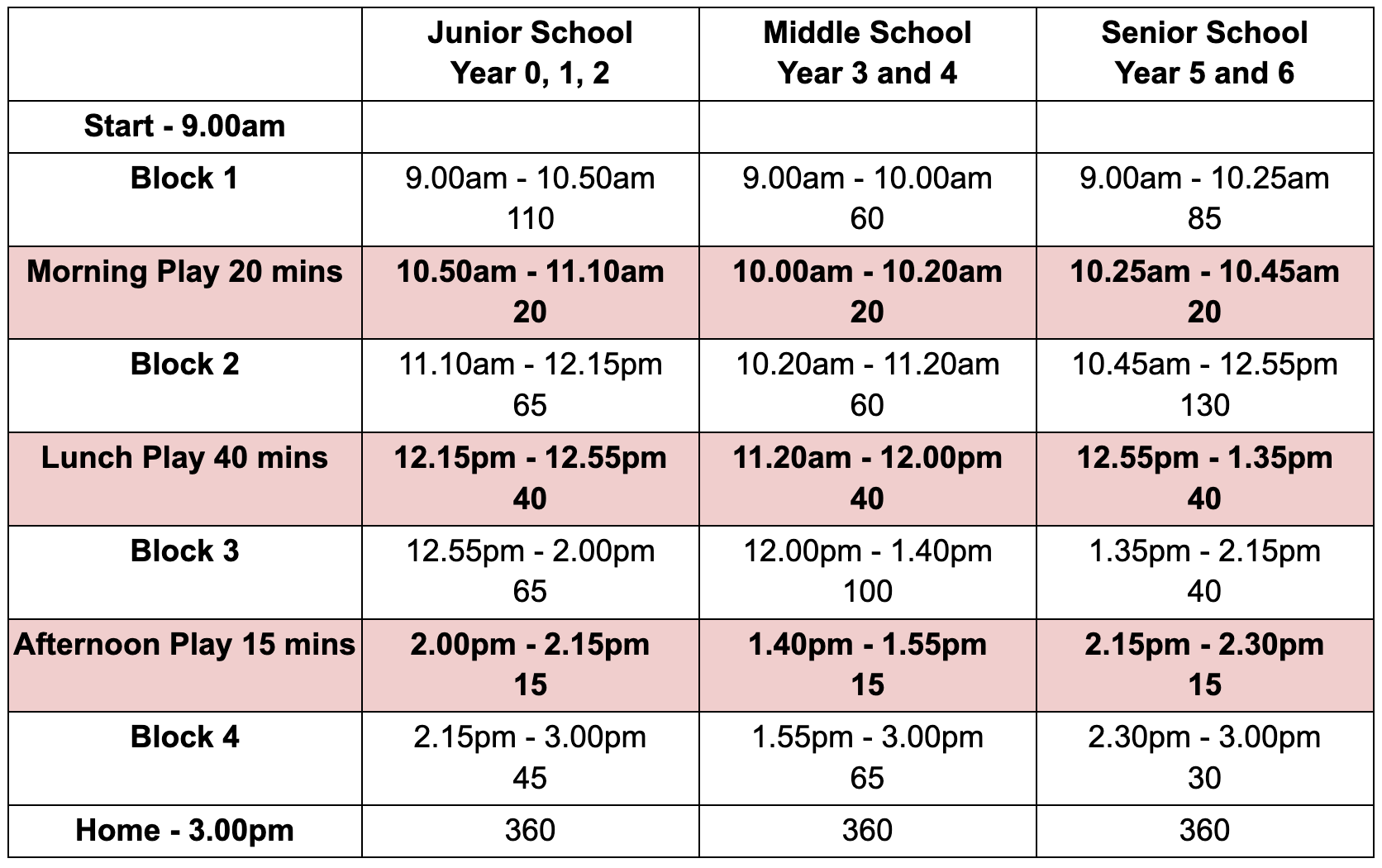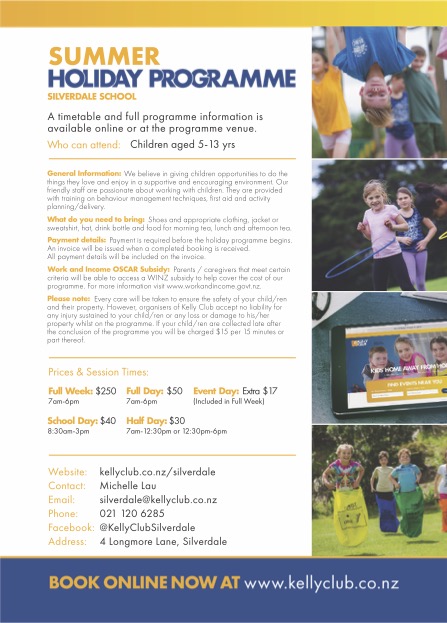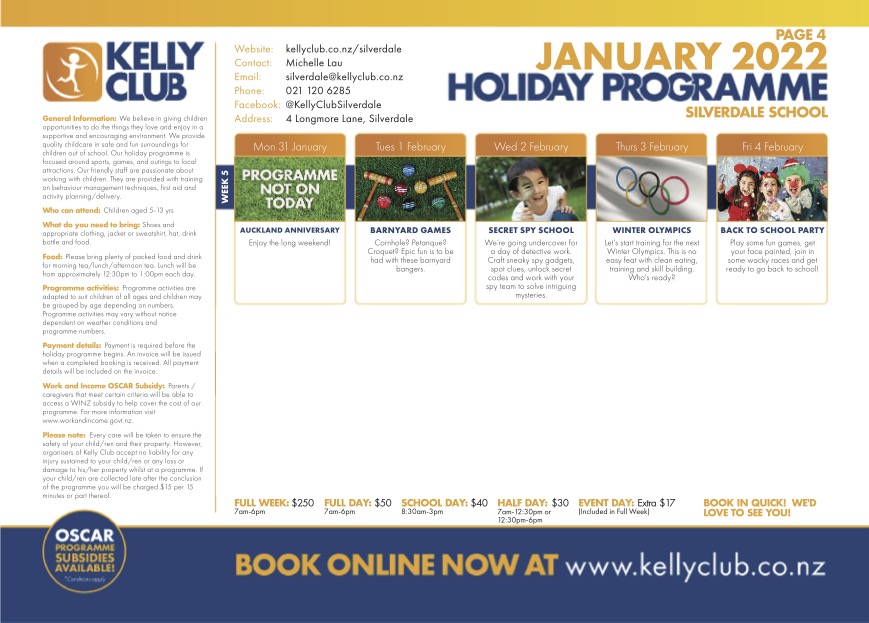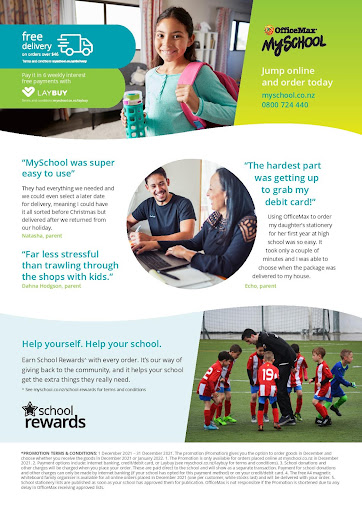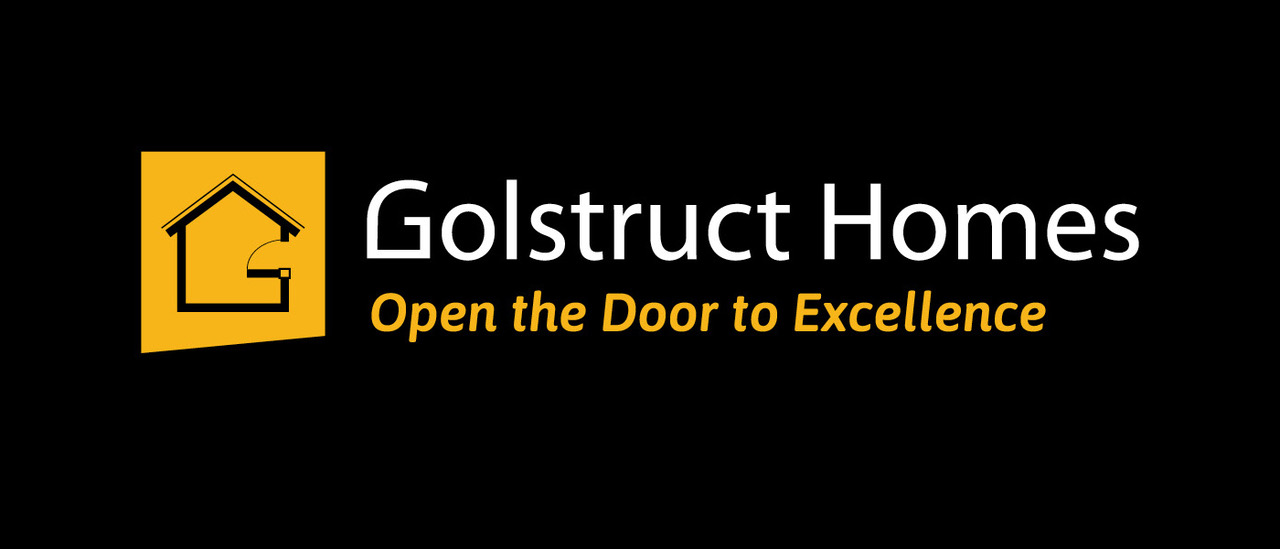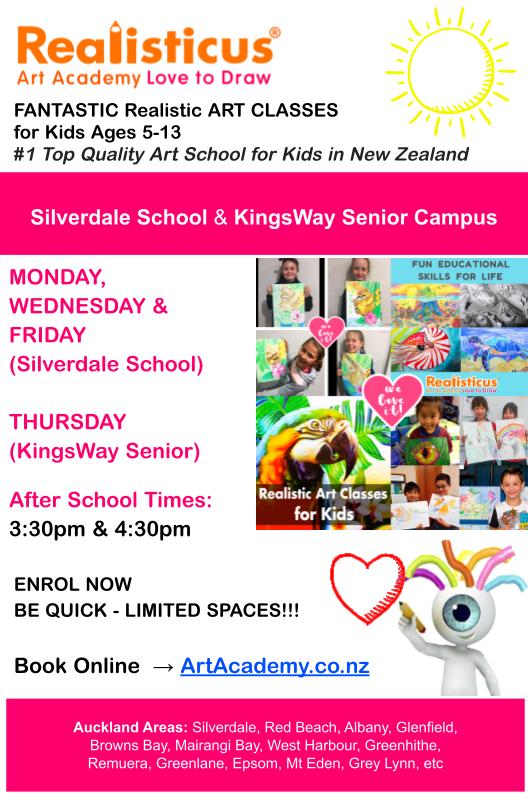Tuesday 7 December
Confirmed Case of COVID-19 In Our School Community
Kia ora, Talofa, Malo e leleli, Kia orana, Fakalofa lahi Atu, Taloha Ni, Ni sa bula, 你好, Namaste, 안녕하세요, Hola, Xin chao.
|
Kia ora, Kia Orana, Bula Vinaka, Malo e lelei, Talofa lava, Fakafeiloaki, Fakaalofa lahi atu, Fakatalofa atu, Halo, Warm greetings.
The health and wellbeing of our children, staff and community is a top priority.
We’re sending this email as there is a confirmed case of COVID-19 in our school community. The student was at school on Wednesday 1 December.
Those that were in close contact with the case have been provided the appropriate public health advice including testing and isolation requirements.
Our school is staying open. Based on international and local evidence and experience, the risk of COVID-19 transmission within school settings is considered low. This means that it is no longer necessary for the school to immediately close when a case has been identified as infectious while at school.
Silverdale School is staying open at this time.
What you need to do
- You and your whānau should watch for symptoms
- If any develop, get tested immediately
- Then, stay at home until you receive the result
- If your whānau hasn’t been vaccinated, please do so as soon as possible. You can book on-line at bookmyvaccine.nz or by calling 0800 28 29 26. It’s free.
What we’re doing
- We will stay open.
- We have appropriate public health measures and cleaning procedures in place.
Symptoms of COVID-19
- A new or worsening cough
- Sneezing and runny nose
- A fever
- Temporary loss of smell or altered sense of taste
- Sore throat
- Shortness of breath
Less common symptoms include diarrhoea, headache, muscle aches, nausea, vomiting, malaise, chest pain, abdominal pain, joint pain, or confusion/irritability. For more information, go to https://covid19.govt.nz/health-and-wellbeing/about-covid-19/covid-19-symptoms/
Please contact Cameron if you have any questions.
Ngā mihi nui
Cameron Lockie
|
|
|
|
|
|
|
Reasons to get vaccinated
Without vaccines, we’re at risk of serious illness, disability or even death from things like the measles, meningitis, pneumonia, tetanus and polio – and now COVID-19.
Vaccines work by stimulating the body’s natural resistance by training our immune systems to create antibodies.
Here are a few reasons why vaccinations are good – for everyone:
- they can prevent us from getting sick
- they are safe
- they can save lives
- they will not cause a disease they are designed to prevent
- they can help protect the community
- prevention is much better than treatment.
In a nutshell, by getting vaccinated, we are protecting ourselves, our loved ones and those around us. Most people can be vaccinated, but those who cannot be – including very young babies, those who are seriously ill or have certain allergies – they depend on us to be vaccinated to ensure they are also safe from vaccine-preventable diseases.
These are the reasons the Government is requiring the education workforce to be vaccinated by 1 January 2022.
It’s important to know that licensed vaccines have been rigorously tested across multiple phases before being approved for use.
How does the vaccine work?
The COVID-19 vaccine works by teaching your body to fight the virus and protects you from
getting sick:
- The vaccine sends a set of instructions to teach your body how to fight the COVID-19 virus.
- With these instructions your body learns to recognise the COVID-19 virus and use antibodies against it. Antibodies stop the virus from infecting your cells and help to kill it.
- That means if you come into contact with the COVID-19 virus in the future, your body will have the right tools to protect itself so you are less likely to get sick.
Is the vaccine safe?
The Pfizer vaccine has been thoroughly assessed for safety by our own Medsafe experts.
Medsafe only grants consent for using a vaccine in Aotearoa once they’re satisfied it has met strict standards for safety, efficacy and quality.
This is the same process used to assess other vaccines, like the flu, measles, and tetanus vaccines. There have been no shortcuts taken in granting approval.
The Pfizer vaccine has been used successfully by millions worldwide and is highly effective at preventing severe illness and death. It continues to be monitored for safety.
Why was it developed so quickly?
Because the mRNA vaccine is not new technology and has been studied for over a decade, including for the development of other vaccines such as the seasonal flu vaccine, researchers had a head start.
This is the first time scientists and governments from around the world have united to develop a vaccine. This global collaboration meant they could spend an enormous amount of time and money into developing the vaccines very quickly without taking any shortcuts in the necessary processes or compromising safety. This also meant that the various stages of research development happened at the same time.
Are there any side effects?
It is common to experience mild side effects, such as muscle aches, pain at the injection site or headaches.
These are more commonly reported after the second dose and are actually a sign that your body’s immune system is learning to fight the virus. They don’t last long and won’t stop you from having a second dose or going about your daily life.
There are some side effects that are more serious but very rare, like a severe allergic reaction or an inflammation of the heart. If you develop difficulty breathing, a racing heart, chest pain or feel faint immediately or in the days after the vaccine, you should seek medical attention.
Further information
Here are links to some downloadable PDFs:
The Unite Against COVID-19 website also has content about misinformation and scams which may also be helpful for you and for your community.
If you see something about COVID-19 or the vaccine that doesn’t seem right or if it’s on social media, you can report it to the platform. Anything else can be reported to CERT NZ.
Here is a range of resources available to inform people who are anxious about the vaccine.
Videos
- Nigel Latta, Dr Maia Brewerton and Dr Helen Petousis-Harris recently answered questions in a Facebook live event.
- Dr Ashley Bloomfield, Dr Nikki Turner, Dr Siouxsie Wiles and Dr Vanisi Prescott recently answered questions about the COVID-19 Vaccine, moderated by Mihingarangi Forbes.
- Mihingarangi Forbes sat down with Dr Hinemoa Elder to discuss some key concerns and hesitancies.
- Vax Facts with Māori Doctors: Dr Anthony Jordan, Dr Papaarangi Reid, Dr Rawiri McKree-Jansen, Dr Maia Brewerton (specialists and activists in Māori health) take phone calls from the Public about Covid and the Vaccine. (Most callers are unvaccinated.)
- Clinical psychologist Rachel Prebble explains how to talk to friends and whānau in this video create an opportunity for open, safe conversations which build trust and enable change over time
- A fun and informative item on the Hahana Facebook page with answers to lots of vaccine questions.
- A rangatahi panel with Dr Jason Tuhoe to kōrero about the vaccine from different perspectives (vaccinated, vaccine hesitant, wants to be vaccinated but whānau pressure not to).
- Watch a discussion between four health professionals where they share their thoughts, knowledge and experiences of the COVID vaccine in Straight Up with Dr. Lily Fraser – The Panel.
Articles
|
|
|
|
|
School Leavers – notice re ezlunch / Kindo school shop
If your family is leaving our school and moving to another school that does not use ezlunch or Kindo for school payments, you need to close your account. If you’re not sure about the new school, log in, go to My Details and click on the list of schools, scrolling to find your new school.
If your new school is NOT on the list, use the ‘close account’ button on that screen. You can choose to donate your balance to school or have it paid out to your nominated bank account.
|
|
|
Kelly Club
Great news, our Kelly Club pre Christmas and Summer Holiday programme will be running from the Silverdale School hall from Monday 20th December to Friday 24th December and then again from Wednesday 5th January until Friday 4th February.
As we have done previously, we will be operating to the Ministry of Health and Ministry of Education COVID-19 guidelines and health measures.
We have an awesome action-packed holiday programme planned, and we’re really looking forward to seeing all of the familiar faces and lots of new faces.
Our programme is really flexible and caters for full week bookings and one-off days.
We can’t wait to see you!!
|
|
|
|
|
|
|
|
|
|
|
|
|
|
|
SUMMER FOOTBALL IS NOW HAPPENING FROM TERM 1, 2022
Silverdale SportsHub is looking for players!
Hibiscus Coast AFC is hosting summer football afternoons during Term 1, 2022.
If you have a child who would like to play Summer Football every Monday from 14 February, 2022 at Stanmore Bay Park please complete our online registration form here – https://forms.gle/J1tCBNHp5mJ334Jw8
All students from Silverdale School years 0 – 6, at the beginning of Term 1, 2022, are able to play.
These afternoons are a great way for your child to try out soccer/football in a fun environment with school mates.
Please note, NO PAYMENT is required on registration.
|
|
|
|
|
|
|
|
|
|
|
|
|
|
|
|
|
|
|
Thank you to our Newsletter Sponsors
|
|
|
|
|
|
|
|
|
|
|
|
|
|
|
|
|
|
|
|
|
|
|
|
|
|
|
|
|
|
|
|
|
|
|
|

